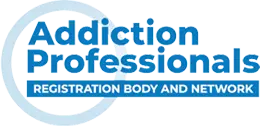The main objective of the Practitioner directory is to protect the public and help them find practitioners they can trust.
It aims to reassure clients, employers and the general public that AP Practitioner Members/Advanced Practitioner Members are committed to upholding our Standards of Conduct and Ethics. This is not a complete list of AP Practitioner/ Advanced Practitioner Members. If you want to search the whole directory, please use the search box in the menu. Practitioners who are accredited with the National Counsellor Accreditation Certificate have 'NCAC' after their names. Practitioners who have the Drug and Alcohol Professional Certificate have 'DACP' after their names.
If you cannot find the practitioner you are looking for please contact us.
Choosing a practitioner who is an Addiction Professionals member gives you assurance that they strive to meet standards of competency and ethical practice. This assurance is based upon the following:
a) All practitioners agree to adhere to our Standards of Conduct and Ethics.
b) We ask for the following information in order for individuals to advertise as therapists/and or counsellors:
For practitioners who wish to describe themselves as ‘counsellors’ or ‘therapists’ or describe their services as ‘counselling’ or ‘therapy’ we will ask that the following criteria have been met:
You will be required to have completed and graduated from a counselling or psychotherapy practitioner training course at educational level 4 (or above). Your course must have involved at least 400 hours classroom-based tutor contact. You must also have completed a supervised placement of at least 100 client contact hours as an integral part of your course. Your placement hours must have been:
- carried out with genuine clients, rather than, for example, peers from your course;
- in an appropriate setting with appropriate clients. Counselling services are an ideal setting as they are likely to assess whether clients are suitable for your level of competence. Your training provider should not allow placement hours through private practice or with client groups that have not been pre-assessed as suitable - such as children and young people or those with complex mental health needs;
- assessed (or marked) as an integral part of your training;
- supervised. Supervision is important at all stages of seeing clients.*
c) We check professional qualifications of members in relation to their profession/role.
d) We offer levels of accreditation, which involves members being required to evidence their qualifications and experience.
* In some instances we allow Accreditation of Prior Experiential Learning, in particular for practitioners who became counsellors prior to academic courses being widely available.
Many members will provide a description of their experience and special interests in their outlines on our website that goes beyond these checks, and we advise members of the public to verify the background, qualifications and experience of any member whose services they are considering, including criminal disclosure checks. For more information about what to look for from treatment and treatment providers see our Information for the public.
-
person
-
personChina, Camilla | 7320
Trauma-informed therapy, relapse prevention, and neurodivergent recovery support for adults and young people -
personClose, Sheryl | 254
Psychotherapist specialising in Addiction, Eating Disorders. Somatic Experiencing Practitioner specialising in PTSD and Developmental Trauma CPTSDlocation_on South East | send Harley Street, London & Harrold, Bedfordshire | workspace_premium NCAC -
personCockfield, Jeffrey | 764
-
Cole, Andrew John | 2300
Talking therapy for substance and associated behavioural addictions -
personCowell, Sylvia | 3078
Qualified therapist working with addictions, anxiety, depression and relationships. -
Cox, Ann | 2416
Integrative Counsellor: Addiction, Couple Counselling, Supervision Registered member of BACP and Advanced Practitioner member of Addiction Professionals -
personCraig, Rochelle | 7227
Addiction counselling both substance and behavioural with special focus on food addiction and destructive eating patterns -
personCullimore, Mandy | 2343
-
personDass, Devika | 7402
Crisis Intervention and management, Case Management, Psychosocial Support with recovery, interventions, safe transportation, home detox

